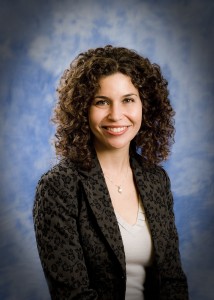 Tax time has become widely recognized as a “teachable moment” where nonprofits, banks and credit unions, along with government partners help low-income families leverage a mandated activity to improve a family’s financial well-being. Cities have partnered with Volunteer Income Tax Assistance (VITA) programs to provide free or low-cost tax prep services to increase the number of their residents receiving the Earned Income Tax Credit, bringing millions back into local economies. Some nonprofits help families use their return to pad their savings or contribute to their down payment or mortgage closing costs. This is also a good time to get an annual financial check up – a planning session where practioners help families to develop a financial roadmap for their future.
Tax time has become widely recognized as a “teachable moment” where nonprofits, banks and credit unions, along with government partners help low-income families leverage a mandated activity to improve a family’s financial well-being. Cities have partnered with Volunteer Income Tax Assistance (VITA) programs to provide free or low-cost tax prep services to increase the number of their residents receiving the Earned Income Tax Credit, bringing millions back into local economies. Some nonprofits help families use their return to pad their savings or contribute to their down payment or mortgage closing costs. This is also a good time to get an annual financial check up – a planning session where practioners help families to develop a financial roadmap for their future.
Because such efforts have been so successful, NCLR applauds the U.S. Department of the Treasury for leveraging tax time toward another critical goal: connecting families to a basic bank account. Treasury is currently testing the use of prepaid cards for individuals that do not have bank accounts. Prepaid cards are reloadable payment cards that are issued by banks―and therefore come with certain protections and Federal Deposit Insurance Corporation (FDIC) insurance―and carry the American Express, Discover, MasterCard or Visa logo. The cards allow families to receive their refund via direct deposit and avoid high-cost cash advance products. Last year NCLR surveyed VITA clients in five cities where prepaid cards were available for those without traditional bank accounts. Card users gave the product high marks. They enjoyed the convenience of plastic and the control of only being able to spend what they have.
As with all banking products, consumers must still be on guard. Not all cards are created equal. In our survey, some card users were hit with high fees unexpectedly or were charged more when they became unemployed and lost their direct deposit. Still, prepaid cards hold promise as a strategy to introduce individuals into participating in the mainstream banking system. This is critically important for the 40% of Latinos who do not have a basic checking or savings account and for cash carrying immigrants that are routinely targets of violent crime. According to the FDIC, unbanked families spend an average of $700 a year to pay for the financial transactions necessary to run their household such as check cashing and bill paying.
NCLR is eagerly awaiting the results of the Treasury’s prepaid card pilot program. To be clear, just having the card will not be enough. To facilitate their transition away from costly fringe financial providers, prepaid cards must offer a simple and transparent fee structure and all the security of a traditional bank account. Ideally, the card will allow users to graduate to more advanced bank and credit products thereby expanding their financial opportunities. For families budgeting to their last pennies, simple and straightforward banking products help put more in their pockets and less toward expensive transaction-based services. When paired with the teachable moment offered by tax time, prepaid cards may soon become another tool in our box to put low-income families on the path to a more secure financial future.
Janis Bowdler is the Director for the Wealth-Building Policy Project at the National Council of La Raza (NCLR), the largest national Latino civil rights and advocacy organization in the United States. Her project conducts policy and legislative analysis, research, and advocacy work on issues that promote the financial security and advancement of Latino families through asset ownership and wealth creation. This includes issues surrounding banking, homeownership, credit, and household debt.

HAPPY TAX DAY!
Free and low-cost prep services are great but I’d like to see some workshops that teach Latinos how to do their own taxes from home as well…it would save us both the time and money, not to mention adding to our financial empowerment.